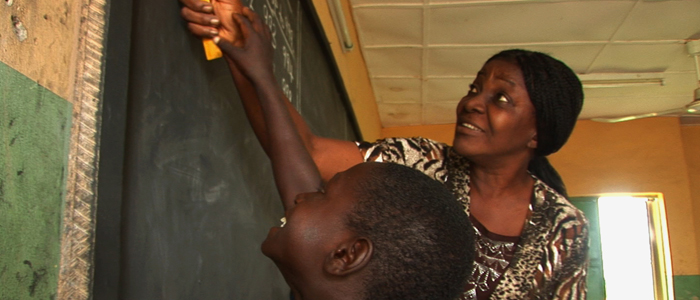
This program promotes African research on key development issues on the continent, with the overarching goal of enhancing development effectiveness. It aims to build a thematic network of researchers-donors-policymakers by undertaking tailored activities, including research, capacity building and facilitating dialogue between researchers and policymakers, to promote African voices on aid effectiveness and its implications on the changing donor landscape in Africa.
With the financial support of USAID, GDN is working in cooperation with the African Economic Research Consortium (AERC) on strengthening the capacities of African researchers and policy institutions to inform and advise the priorities of old and new donors, including USAID, new donors such as China, and other DAC countries in sub-Saharan Africa. The research will contribute to promoting African voices and perspectives as part of fact based contributions in bilateral and multilateral development policy fora.
Objectives
- To build a reliable platform for development experts and policy makers from aid recipient countries to voice their recommendations on how to improve development cooperation between Development Assistance Committee (DAC) and non-DAC donors in Africa
- To strengthen the capacity of African policy institutions to act as policy advisors to donors and Africa governments on development assistance issues
- To develop authoritative research products that inform USAID strategic priorities on select issues such as on extreme poverty, food security, economic analysis and reform, agriculture development, public/private partnerships, trade, domestic and foreign investment
Activities
Through this program, GDN and the AERC will organize a number of activities and events centered upon promoting the perspectives of African researchers, involving policy makers and development stakeholders, including international aid agencies. Activities include:
- A high-level policy dialogue in Africa (Dakar, Senegal, December 2016) and two high-level round tables with international aid agencies and researchers in Washington DC (October 2016 and late 2017); national policy seminars featuring the research produced under the grant (one on financial inclusion was held in Nairobi, Kenya in March 2016)
- Overview papers on the debate on aid effectiveness in Africa, and the position of African actors in it; Individual research capacity building through a regional research competition and institutional research capacity building through a global research competition for cross-country collaborative research on aid effectiveness in agriculture and health in sub-Saharan Africa
- Research communication and policy outreach training workshop for research grantees
- A thematic network and online knowledge sharing platform, publication and outreach efforts
Highlights
GDN recently closed a competitive call for interest as part of the Global Research Competition (GRC) on aid effectiveness in sub-Saharan Africa.
In a series of three high-level panels held at the Brookings Institution in Washington DC on October 6 2016, researchers and policy makers from sub-Saharan Africa engaged with international aid agencies to discuss the link between local research, domestic policy processes and international aid in sub-Saharan Africa (SSA). Watch the video recordings of the three panel discussions on:
Key Research
“The Future of Aid Effectiveness in sub-Saharan Africa – A Research Agenda"
Léonce Ndikumana and Lynda Pickbourn (August 2016)
Authors Léonce Ndikumana and Lynda Pickbourn present a critical assessment of the state of literature on aid effectiveness, with a focus on perspectives from African researchers and a possible way forward for the research community. The authors highlight problematic features in aid design and delivery, which takes place on the micro level in spite of its impact being measured at the macro level, particularly in terms of contribution to economic growth. They argue that aid effectiveness research needs to move its analysis to the sectorial level (health, agriculture, gender, conflict, etc.), where impact is more likely to be visible and measurable, and find that aid influences the institutional environment as much institutional factors influence aid. The paper further presents an argument for any analysis of aid effectiveness to be based on a solid analysis of historical conditions and external shocks that have influenced development and the effectiveness of aid services.
"Aid Effectiveness and its Discontents in sub-Saharan Africa"
Augustin Kwasi Fosu (December 2016)
Augustin Kwasi Fosu provides an analysis of the critical debate on the notion of aid ‘effectiveness’ in sub-Saharan Africa (SSA), with a focus on the perspectives of African scholars and African policy actors. The study outlines the discourse around aid effectivess and examines the role of traditional and emerging donors in shaping and promoting the debate. To make aid more effective and mitigate ‘discontent’, Fosu argues that SSA countries need to incorporate aid effectiveness measures into their short, medium and long-term plans; ensure effective coordination of traditional and emerging donors; forge development cooperation beyond aid to include trade and investment; mainstream the creation of a conducive environment for private investment and domestic resource mobilization; effectively control capital flight; and pay greater attention to South-South cooperation. He argues that donors should ensure more efficient and effective aid targeting, particularly toward the productive sector, and attenuate aid-tying conditions. Finally, complementary studies to elicit the views of the various SSA actors are called for, to more appropriately capture the comparative perspectives of aid effectiveness and its discontents in (sub-Saharan) Africa.





